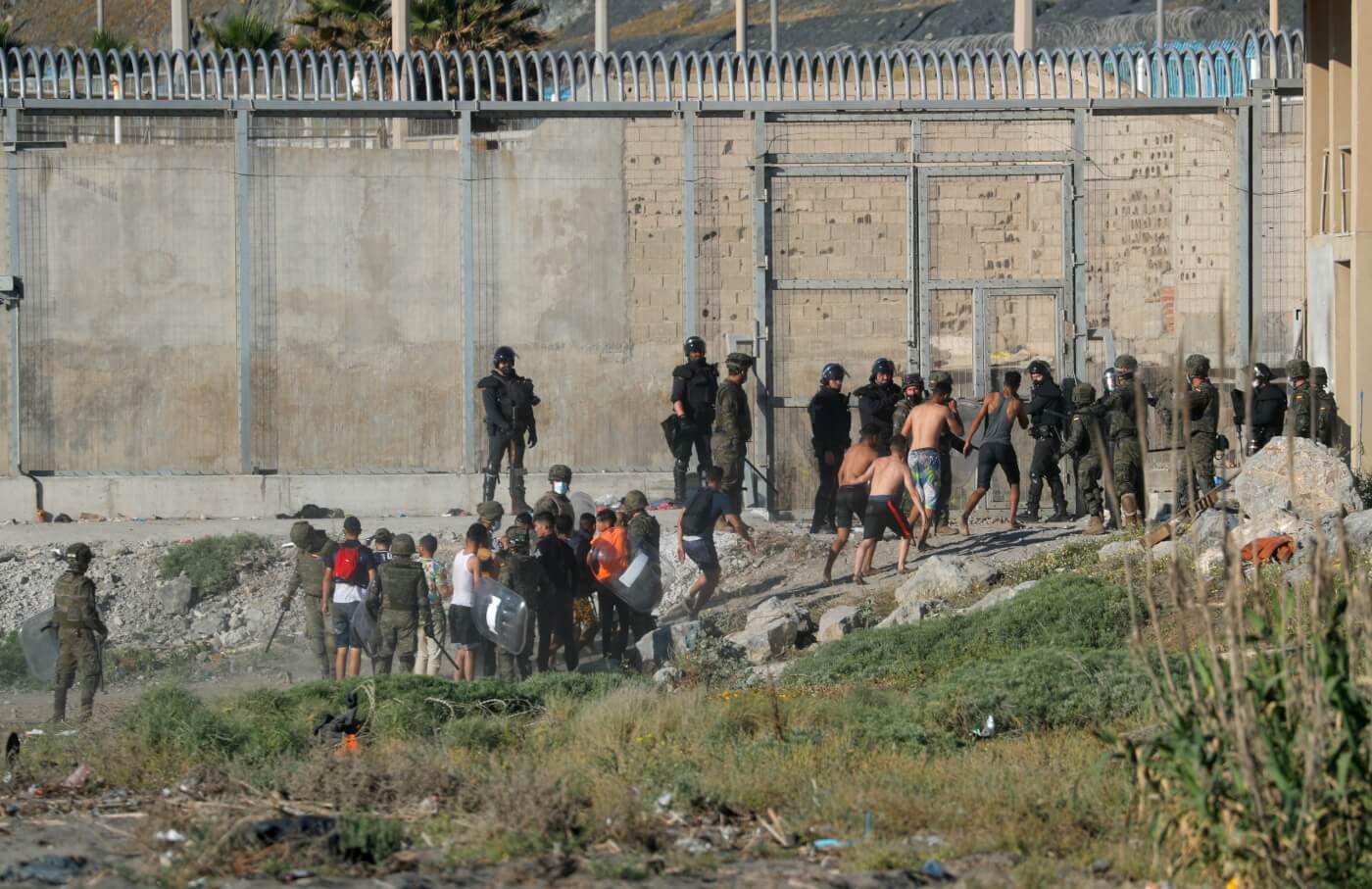On Monday 17 May 2021, over 8,000 Moroccan migrants crossed the border into the Spanish enclave of Ceuta, some swimming the way, others packed in unstable boats. While at least eight different aid organisations, including the Red Cross, have deployed to Ceuta, the Spanish government is struggling to deal with the sheer number of migrants.
The reason for this humanitarian crisis in Ceuta is likely the relaxing of border controls in Morocco. Pedro Sánchez, Spain’s prime minister, stated in parliament that Morocco relaxed its borders as an act of defiance, commenting that:
“The lack of border control by Morocco is not only a show of disrespect of Spain, but rather for the European Union.”
Arancha González Laya, Spain’s foreign minister, commented that Spain believes Morocco’s actions were a response to Madrid’s decision to treat the leader of the Western Sahara independence movement for Covid-19. Analysts have speculated that Morocco’s aim is to gain European recognition for Rabat’s claim to the Western Sahara. The foreign minister commented that:
“It tears our hearts out to see our neighbours sending children, even babies [because] they reject a humanitarian gesture on our part”
Amnesty has also criticised Morocco for using its people’s lives as “pawns in a political game”, after all, the result of this type of diplomacy is human suffering. Since 17 May 2021, more than 6,500 of the migrants have been sent back to Morocco by the Spanish military and police force. Judith Sunderland of Human Rights Watch criticised Spain’s decision to send back the migrants and highlighted that the Spanish approach did not allow for individual assessments of the migrants’ personal circumstances, stating:
“It’s contrary to Spanish law, it’s contrary to European law and it violates international human rights and refugee law.”
Among the migrants are at least 438 children and teenagers who crossed the border unaccompanied by an adult, and more are being rounded up by social services workers on the streets of Ceuta. Hundreds have been sent to warehouses while others are sleeping rough in the streets, abandoned cars, or city parks. Many of the unaccompanied children are below the age of ten, and while some have been returned to their families in Morocco, others remain in Ceuta’s makeshift shelters.
The conditions of the shelters have been described as inadequate, meaning children have had to go days without hot meals, being provided instead with apples, yoghurt, and sandwiches. The lack of space and beds meant many had to sleep on the floor. Since both the Spanish government and the involved aid groups have been overwhelmed by the sheer number of migrants requiring assistance, many are not having their basic needs met. One migrant told FRANCE 24:
“We went to see three different organisations, but we were turned back. We went to the police station, and they chased us away. We went to the Red Cross, and they told us they couldn’t take us in”
Local Ceuta residents have responded to the crisis on their shores by stepping up to provide arriving migrants with food, clothes, and water. While the future for many of the Moroccan migrants is uncertain, one commented:
“They give us clothes, we can come have showers here… they give us food and water. It’s everything we need, thank God. The people of Ceuta are kind to us”

